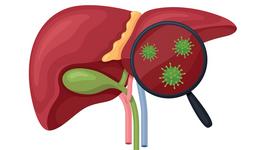RNA Repeat Targeting as Potential New Therapeutic Strategy for ALS and Frontotemporal Dementia
CMN Intelligence - The World’s Most Comprehensive Intelligence Platform for CRISPR-Genomic Medicine and Gene-Editing Clinical Development
Providing market intelligence, data infrastructure, analytics, and reporting services for the global gene-editing sector. Read more...
The hexanucleotide GGGGCC repeat expansion in the C9orf72 gene is the most common identified mutation in amyotrophic lateral sclerosis (ALS) and frontotemporal dementia (FTD) patients. This expansion leads to the production of repeat RNA and dipeptide repeat proteins (DPR), both of which contribute to disease and are recognised as important disease markers.
In a recent study, a team in the United States demonstrated that CRISPR-Cas13d can be optimised to specifically target GGGGCC repeat RNA to minimise the translation of associated poly-dipeptides.
The team, based at Johns Hopkins University, shows that the optimised CRISPR-Cas13d system effectively reduced DPR production when delivered via lentiviral particles to various in vitro models, including C9orf72-ALS patient-derived induced pluripotent stem cells (iPSCs) and motor neurons derived from those iPSCs, and that the efficiency of RNA targeting corresponded to Cas13d expression levels. Intracerebroventricular injection of the C9orf72-targeting cargo (delivered via AAV9) in C9orf72 repeat transgenic mice revealed a significant reduction in DPR levels. The team reports that the approach exhibits specificity for expanded repeats, with minimal effect on wild-type C9orf72 transcripts and protein levels.
In summary, the study demonstrates that CRISPR-Cas13d can be optimised to target GGGGCC repeat RNA and significantly reduce toxic DPR production in the studied ALS/FTD models. With the caveat that animal models for ALS and FTD do not fully recapitulate the neurodegenerative features of these diseases in humans and that further experiments are needed, the approach could have potential as a new therapeutic avenue for ALS and FTD.
The findings were published in The Journal of Clinical Investigation (1).
References
- Liu H, Zhao XF, Lu YN, et al. CRISPR-Cas13d targeting suppresses repeat-associated non-AUG translation of C9orf72 hexanucleotide repeat RNA. J Clin Invest. 2024 Sep 17:e179016.
To get more CRISPR Medicine News delivered to your inbox, sign up to the free weekly CMN Newsletter here.
Tags
ArticleNewsCMN BriefsAlzheimer’s diseaseNeurological diseaseCas13
CLINICAL TRIALS
Sponsors:
Base Therapeutics (Shanghai) Co., Ltd.
Sponsors:
Base Therapeutics (Shanghai) Co., Ltd.







